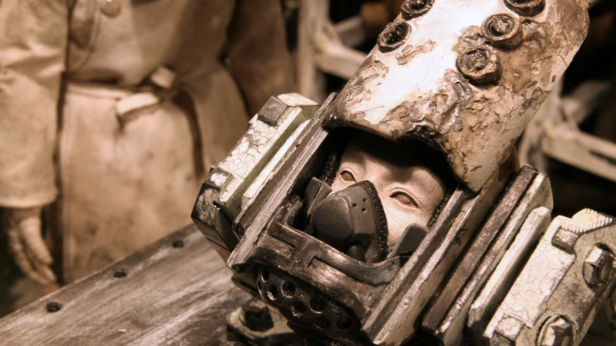As behind-the-scenes footage at its end shows, Junk Head is a true labour of love for Takahide Hori, who directs, writes and edits this stop motion animation, as well as voice work, composing the score and most of the other odd jobs.
A funny and both cute and creepy dystopian tale, it’s a truly unique vision, though for a taste of its style, imagine if Henry Selick or the Quay brothers made a film designed by Clive Barker, influenced by slapstick.
Hundreds of years into the future, a clone population has rebelled, now living far underground. Over time, they’ve evolved and mutated into all sorts of species: some of them ostensibly peaceful, some horrific and bloodthirsty.
Meanwhile, the human race above can no longer reproduce thanks to the results of gene manipulation. A human explorer ventures down to the world below in search of lost genetic information, only to end up with his mind transplanted into various mechanical forms and treated like a god (and literally referred to as ‘God’ by a trio of monster hunters).
His series of wild adventures take him through trials akin to a certain deity (rebirth and resurrection among them), while meeting various oddball characters, barely escaping being eaten by an array of nightmare creatures, and embarking on a mission to find a tree of life.
There’s a leisurely pacing which allows for strong world-building and an attachment to the various weirdos of this world, even though there’s repetition with our robo-human lead being chased by another nasty creature every 15 minutes. This isn’t so much of a problem until the film’s final third, where clear obstacles to overcome and a sense of narrative momentum actually develop. There’s a genuinely thrilling action finale, involving real stakes for characters we’ve grown to care about.
And then, the film just ends, with no sense of closure for even the scene that’s just finished. The credits suddenly roll and you’re left hoping this ongoing project does get to continue. Fingers crossed.
